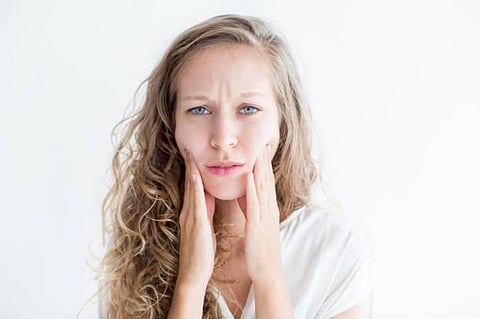
- Home
- न्यूजग्राम
- NewsGram USA
- India
- World
- Politics
- Entertainment
- Culture
- Lifestyle
- Economy
- Sports
- Sp. Coverage
- Misc.
- NewsGram Exclusive
- Jobs / Internships

While "skin barrier" gets slapped on products and thrown around a lot on social media, unless formulated correctly ceramides don't aid much in barrier repair. It can in fact, delay barrier repair if formulated incorrectly. The founder of the d'you, Shamika Haldipur shares her insights on 'barrier protection'.
How do you stand out from similar product competitors?
Shamik: While there are a plethora of ceramide products in the market, not all products have been developed to mimic our skin's natural lipid ratio – the Golden Ratio of 3:1:1. In most products, ceramides have been either used in isolation or combined with cholesterol and fatty acids in the wrong ratio which actually impedes (delays) rather than accelerates the barrier recovery.
Most products have an extremely low concentration of ceramides which provide very few functional benefits to the skin. The research done on ceramides indicates that 0.8 to 2 percent is effective to promote the recovery of the barrier. However, the ceramide complex that is commonly used in the industry yields a mere 0.015-0.05 percent or at best 0.1 percent ceramide content which is approximately 10-20X lesser than what in my defence contains.
Ceramides are a very expensive ingredient and very thick, waxy and unstable molecule to work with. | Unsplash
Many ceramide products are unable to use ceramides inadequate concentration because ceramides are: (i) a very expensive ingredient, and (ii) a very thick, waxy and unstable molecule to work with. So, brands prefer to use them in lower doses to control the feel, texture, and stability of the end product. We overcame this issue in in my defence by using a patented dispersion technology that allows us to use pure ceramides in a highly stabilised form and at a high dosage while still making a very lightweight formula with a pleasant texture.
We made in my defence by using ceramides in a high dosage of 1 percent pure concentration and in the optimal ratio of 3:1:1 to ensure lipid penetration into the stratum corneum (top layer of the skin barrier) such that it actually repairs your skin barrier over time and gives it resilience and strength to defend itself on its own. With continued usage, your skin's barrier is fortified to reduce its own water loss, and retain more moisture on its own.
What is the meaning behind the collection 'In My Defence"?
Shamik: With in my defence, we want to indicate that in the long term this product is going to enable your own skin to defend itself and that this product and your skin is going to stand "in your defence" against all external stimuli.
Why D'you?
Shamik: d'you is phonetically derived from the word "dew". We wanted to indicate healthy and dewy skin. But at the core of the brand ethos is the customer i.e. YOU. So, we decided to play on the spelling of the word to write it as d'you instead of dew. The apostrophe in the word and our logo indicates a dewdrop.
Your own skin to defend itself and that this product and your skin is going to stand "in your defence" against all external stimuli. | Unsplash
What process do you use to determine which products best fit the needs of a customer?
Shamik: With the skincare and beauty market saturated with so many products at the moment, we as a brand try to look beyond what's already available to the customer and see what customer needs are still not being met by these available products and then develop products that could add some value which they aren't already getting. In essence, we look for gaps in the market and find pain points that the consumer is facing and then make innovative products that provide solutions and address these pain points.
How would you advise a difficult client on a more suitable product than the one she or he has chosen?
Shamik: When a client asks us for consultation on product recommendations, we speak to them honestly by first explaining to them how their skin functions and how products work on the skin. We break it down to them in simple terms so they understand how their skincare ingredients are actually working for them. Basis their concern we advise them if a product we are recommending to them will be more beneficial than what they are already using. Sometimes we also tell them that the product we offer may not work for them basis what concern they are looking to address. When clients see the honesty and transparency with which we approach them and advise they mostly tend to believe us. We also have a strong no-hard sell policy. So we never hard sell our products or any recommendations onto our customers. And customers can see this and therefore genuinely believe whatever advice we offer.
Anyone suffering from a damaged skin barrier will be to go back to the basics. | Unsplash
What would you suggest to a client suffering from a damaged skin barrier?
Shamik: My advice to anyone suffering from a damaged skin barrier will be to go back to the basics. Our skin is very well capable of repairing itself if we give it the chance to do so. So, one needs to cut down on all activities and just stick to a good barrier boosting product like in my defence as a standalone product until your barrier has fully healed.
Also read: Skin Care Routine For a Balanced Skin
Some other basic things you should take care of when you have a damaged barrier is:
(Keywords: Damaged skin, repairing, extreme temperatures, over-cleansing , gentle and mild cleansers, DIY concoctions , physically abrasive materials)
